Early country music set the stage for not only later country songs, but lots of elements in pop music in the US and abroad, both back then and today. The revolutionary new style of instrumentation has garnered fans from all over the world who keep coming back to the classics, no matter the year! Here are some of the top classic country songs from the Golden Age of country.
Best Classic Country Songs of 50s 60s 70s List
| Song | Artist | Year |
|---|---|---|
| Your Cheatin' Heart | Hank Williams | 1952 |
| Sixteen Tons | Tennessee Ernie Ford | 1955 |
| Folsom Prison Blues | Johnny Cash | 1955 |
| The Ballad of Davy Crockett | Bill Hayes | 1955 |
| I Walk the Line | Johnny Cash | 1956 |
| Heartbreak Hotel | Elvis Presley | 1956 |
| Hound Dog | Elvis Presley | 1956 |
| I Can't Stop Loving You | Don Gibson | 1957 |
| El Paso | Marty Robbins | 1959 |
| Crazy | Patsy Cline | 1961 |
| I Fall to Pieces | Patsy Cline | 1961 |
| Act Naturally | Buck Owens | 1963 |
| Ring of Fire | Johnny Cash | 1963 |
| Stand By Your Man | Tammy Wynette | 1968 |
| Mama Tried | Merle Haggard | 1968 |
| Harper Valley PTA | Jeannie C. Riley | 1968 |
| D-I-V-O-R-C-E | Tammy Wynette | 1968 |
| Okie from Muskogee | Merle Haggard | 1969 |
| Coal Miner's Daughter | Loretta Lynn | 1970 |
| Hello Darlin' | Conway Twitty | 1970 |
| For the Good Times | Ray Price | 1970 |
| Kiss an Angel Good Mornin' | Charley Pride | 1971 |
| Coat of Many Colors | Dolly Parton | 1971 |
| Jolene | Dolly Parton | 1973 |
| Behind Closed Doors | Charlie Rich | 1973 |
| Rhinestone Cowboy | Glen Campbell | 1975 |
| Lucille | Kenny Rogers | 1977 |
| Mammas Don't Let Your Babies Grow Up to Be Cowboys | Waylon Jennings and Willie Nelson | 1978 |
| The Gambler | Kenny Rogers | 1978 |
| The Devil Went Down to Georgia | Charlie Daniels Band | 1979 |

50s Country Music Hits
The genre formerly known as “hillbilly music” in the 1920s was rebranded as “country and western music” in 1949 and quickly became known simply as “country.” At the same time, its popularity rose and people all across the States and even abroad became fans of country.
So, while there were certainly some pivotal tracks made before 1950, we will focus only on tracks created after the title “country” came into being.
Country music really began to develop into what we know today in the 50s. At this time, country music was heavily influenced by genres like honky-tonk, gospel, and Western swing. It was a time of an atmosphere of general prosperity and peace, which made the heartbreak songs feel sweeter, especially compared to the recent history of bigger societal issues like war and The Great Depression.
Quickly, Nashville established itself as the Home of Country Music since it had a long history of folk music anyway, as evidenced by the Grand Ole Opry which opened in 1925. Music City USA became a hub for artists to hold concerts and record their albums (not just in the country genre). Having this musical epicenter in the South certainly helped country flourish.
Country at this time was exploring new avenues and making new sounds, which resulted in many different sounds in a short time and gave us many memorable country classic songs that even casual listeners still enjoy today. Aspiring country singers might enhance their vocal skills by taking singing lessons for adults.
"Your Cheatin' Heart" - Hank Williams (1952)
One of the earliest country music hits, Williams’ honky-tonk ballad captured listeners’ hearts.
With its talk of the struggles of everyday people, especially about heartache and betrayal (famously successful motifs in any musical genre), listeners felt the song was deeply resonant.
This early hit made Williams a foundational legend in country music history and helped encourage more heartfelt storytelling in country going forward.
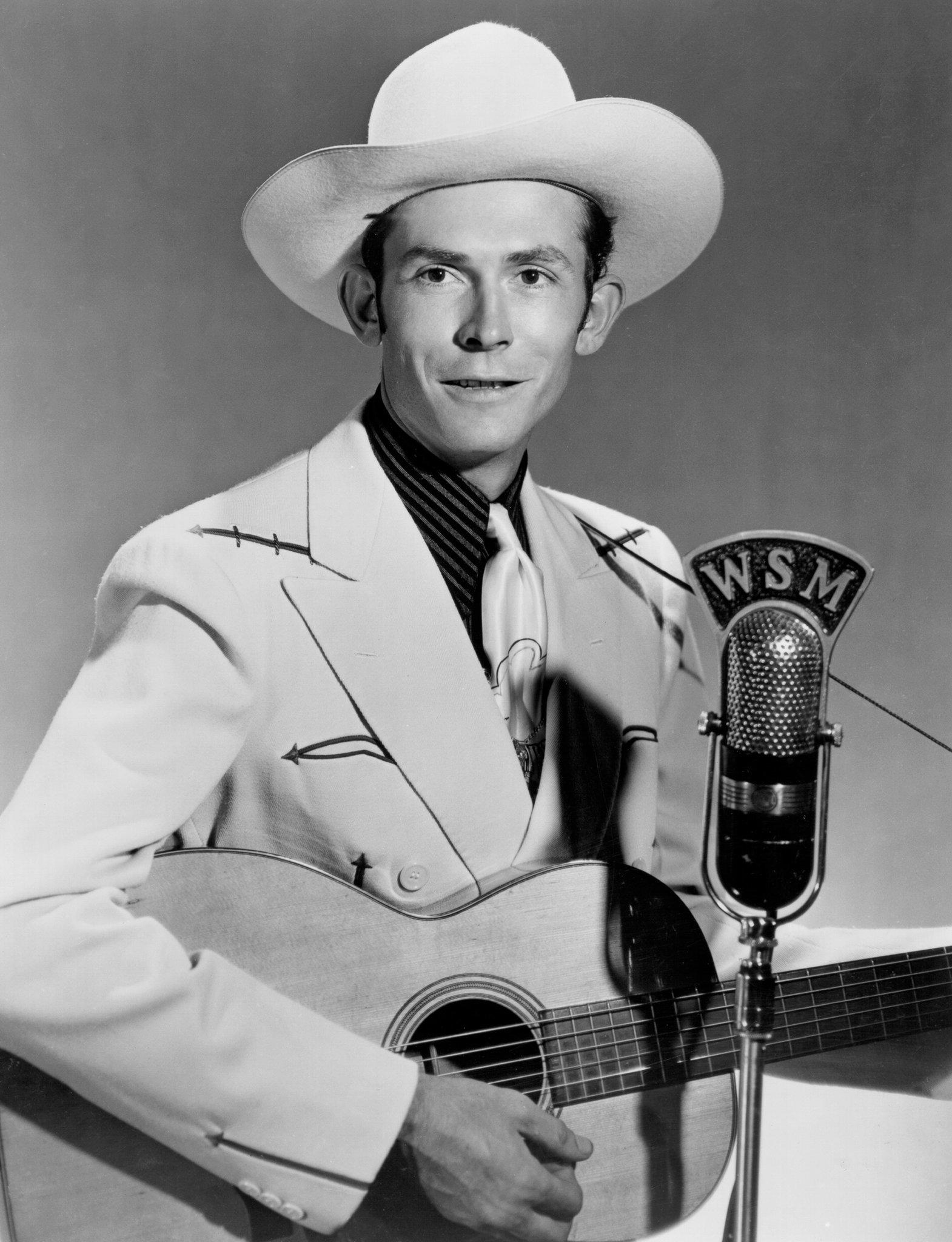
"Sixteen Tons" - Tennessee Ernie Ford (1955)
"Sixteen Tons" struck a chord with working-class audiences by highlighting the hardships of coal miners. Ford’s deep, commanding voice paired perfectly with the song’s somber tone, giving it a weight that felt authentic. Its success brought country and folk influences to mainstream audiences, helping bring sounds from other genres to the table for future country musicians to use and making Ford a lasting figure in American music.
"Folsom Prison Blues" - Johnny Cash (1955)
Johnny Cash’s “Folsom Prison Blues” drew inspiration from the film Inside the Walls of Folsom Prison by Crane Wilbur. Cash later went on to perform and record the song at Folsom Prison in 1968, which also helped revive his career and his notable support of prison reform.
The track’s steady rhythm and haunting lyrics gave a voice to the downtrodden and captured listeners' imaginations. The song’s success helped Cash carve out a unique identity in country music, blending rugged authenticity with an empathy that expanded the genre’s emotional range.
"The Ballad of Davy Crockett" - Bill Hayes (1955)
In the midst of the “Crockett Craze” that was sweeping the nation in the 50s (thanks to Disney marketing), Hayes recorded a version of "The Ballad of Davy Crockett" that became a cultural phenomenon. It was so popular that there were three versions of the song recorded by different artists and released in quick succession, but Hayes’ version reached the number 1 spot in the charts. The song’s success showed how country could intersect with pop culture, paving the way for future collaborations between music and television.
"I Walk the Line" - Johnny Cash (1956)
Johnny Cash is a prevalent name when contemplating old country songs. His iconic voice, stage presence, and lyrics make him stand out no matter how many years have passed. "I Walk the Line" showcased Cash’s innovation with its unusual key changes and heartfelt lyrics. Inspired by his romance with June Carter, the song was both deeply personal and widely relatable, and it even inspired the 2005 biographical drama film Walk the Line.
"Heartbreak Hotel" - Elvis Presley (1956)
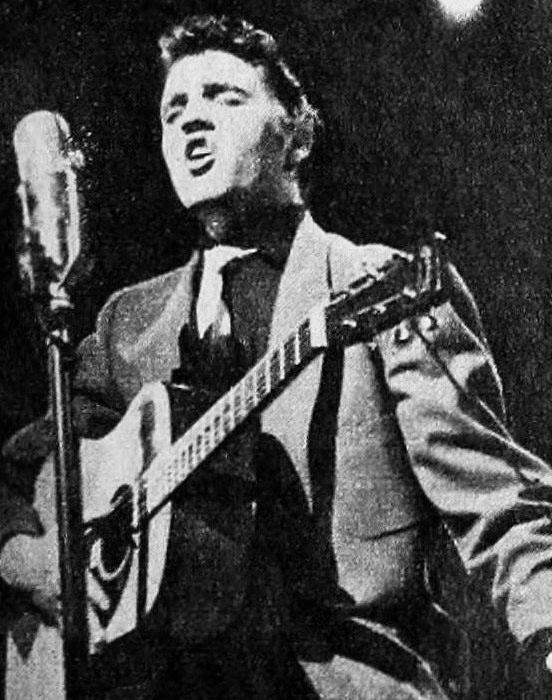
"Heartbreak Hotel" was a game-changer, blending country roots with the emerging rockabilly sound.
Presley’s emotive voice and striking stage presence turned the song (and Elvis) into a massive hit.
Its release helped define the rise of rock 'n' roll, while still showcasing the influence of country music on this new era of popular music.
"Hound Dog" - Elvis Presley (1956)
"Hound Dog" captured the spirit of 1950s youth culture with its driving rhythm and rebellious energy. Presley’s electrifying performance style made the song unforgettable, pushing country-inspired rockabilly further into the spotlight. The track’s success propelled Presley into a cultural icon and highlighted the evolving relationship between country, blues, and rock 'n' roll.
"I Can't Stop Loving You" - Don Gibson (1957)
Heartfelt ballads were a staple early in country music, mingling with the other styles perpetuated by artists like Cash and Presley. “I Can’t Stop Loving You” was a heartfelt ballad that captured the pain of lost love. Its simple yet poignant lyrics connected with listeners across the country. The song’s influence stretched far beyond country music, inspiring Ray Charles’ famous rendition and proving country music is for a wider audience than just stereotypical folks.
"El Paso" - Marty Robbins (1959)
"El Paso" transported listeners to the Old West with its vivid storytelling and quick pace. Robbins’ smooth voice and the song’s cinematic quality made it an instant classic. Its success proved the power of narrative ballads in country music and inspired countless artists to also weave rich tales into their songs.
60s Country Music Hits
By the 60s, The Nashville sound was a popular genre across the nation and even though Beatlemania was gripping the pop scene, country was also blooming in its own world. In addition to The Nashville sound, The Bakersfield sound also became popular, especially since it blended certain elements of pop into country.
As war again became a reality in the nation’s awareness, newly available TV programs like The Porter Wagoner Show were a shining light in dark times, allowing people to forget about their troubles for a while and instead listen to a variety of musical stylings, including country.
The result is even more classic country music for us to enjoy!
"Crazy" - Patsy Cline (1961)
Cline’s impressive vocal talents shone while singing this song, written by Willie Nelson. Her rendition turned the simple lyrics into a masterpiece, the emotional depth and melody making it a crossover hit for pop audiences.
The track not only propelled Cline’s career, but country as a more serious genre that can appeal to a wide audience and helped pave the way for the future of country and pop-country music.
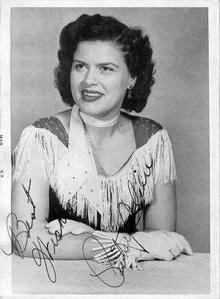
"I Fall to Pieces" - Patsy Cline (1961)
This lushly produced hit helped define Cline’s signature sound. The song reflected the polished Nashville Sound, which blended traditional country elements with mainstream appeal. Cline’s emotional delivery connected deeply with listeners, making it one of the most memorable 60s songs even more than half a century later.
“Act Naturally” - Buck Owens (1963)
“Act Naturally” demonstrated the charm and humor of Buck Owens’ Bakersfield Sound, a rawer alternative to Nashville’s polished productions. Its relatable theme of heartbreak mixed with wit resonated with audiences widely, giving the song a unique appeal. Owens’ success with this track helped define the Bakersfield Sound as a major force in country music and helped it become as relevant as rock n’ roll, especially since the song would go on to be covered by the Beatles!
"Ring of Fire" - Johnny Cash (1963)
Not to be left in the past, Cash again made a huge impact in country with “Ring of Fire.” Written by June Carter and Merle Kilgore, the song was brought to life by Cash’s deep voice and charisma. Cash is well known for his contributions to 60s and 70s country music, influencing generations of artists.
"Stand By Your Man" - Tammy Wynette (1968)
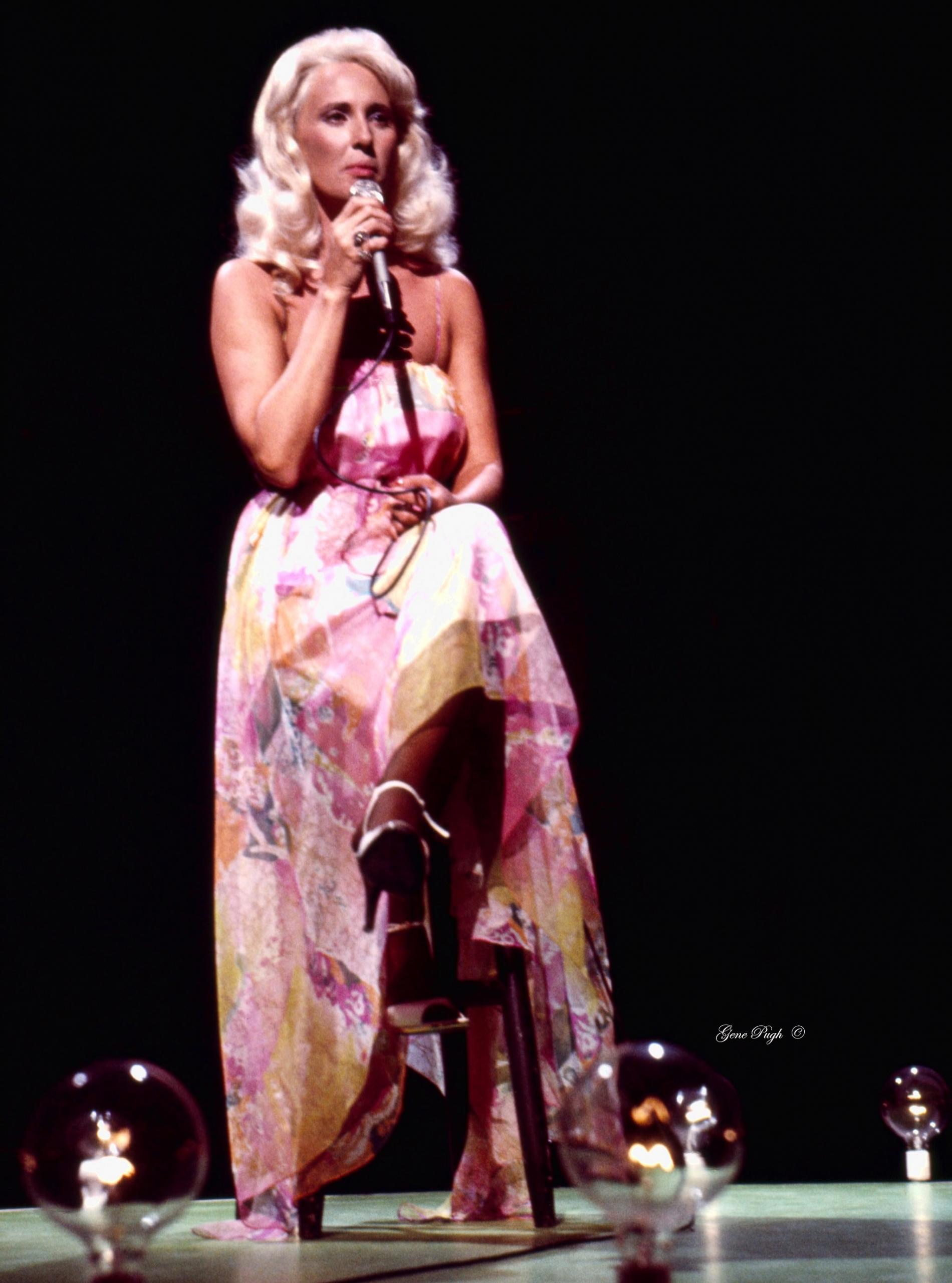
Wynette’s powerful delivery and heartfelt message in her passionate song became an anthem for loyalty and resilience in relationships.
Culturally, it sparked discussions about gender roles in the evolving American society.
Some found it to be too conservative, while others found it gave affirmation in their personal lives.
It was even selected by the Library of Congress to be added to the National Recording Registry for being "culturally, historically, or aesthetically significant” in 2010.
"Mama Tried" - Merle Haggard (1968)
A deeply personal song from Merle Haggard, “Mama Tried” reflects his regret over his troubled youth. Its raw honesty and relatable themes resonated with audiences, both then and now. You can find the popular phrase on stickers, t-shirts, hats, and more as the 60s music sentiment remains relevant through time.
"Harper Valley PTA" - Jeannie C. Riley (1968)
“Harper Valley PTA” (written by Tom T. Hall and apparently based on a true story) was a bold and sassy tale about small-town hypocrisy, brought to life by Jeannie C. Riley’s spirited performance. The song’s story-driven lyrics and unapologetic tone made it an instant hit. It challenged societal norms and demonstrated the power of country music to address social issues with humor and grit, which was a huge step for 60’s music!
"D-I-V-O-R-C-E" - Tammy Wynette (1968)
Ironically, one of Wynette’s other hit songs is about the dissolution of a relationship. In this track, she lays out the emotional pain of a crumbling marriage with poignant lyrics and tender vocals. Its honest portrayal of heartbreak connected deeply with audiences navigating similar struggles and is a profound callback to classic country. The song’s success solidified Wynette’s reputation as the “First Lady of Country Music.”
"Okie from Muskogee" - Merle Haggard (1969)
“Okie from Muskogee” was Merle Haggard’s ode to traditional American values during a time of cultural revolution. Its straightforward lyrics celebrated small-town pride and connected with listeners who shared those sentiments. The song’s widespread popularity made it an anthem for a generation and highlighted country music’s role in reflecting societal attitudes just as much as pop.
70s Country Music Hits
This era of country music is marked by the rise of women in country. Of course, there had been many women before, but at this time, they started taking center stage in a new and unmissable way, in step with the changing American culture.
Naturally, new musical stylings were being created and experimented with as musical artists began to play with the genre and new technologies allowed different and unique recordings to be made. The rise of new genres like Outlaw and countrypolitan were hallmarks of the time. Overall, the genre saw a lot of new developments, which were also aligned to rising TV programming and increasing music sales overall which meant more people were being exposed to more music and having it be part of their core memories, giving us the strong nostalgia factor we see today.
"Coal Miner's Daughter" - Loretta Lynn (1970)
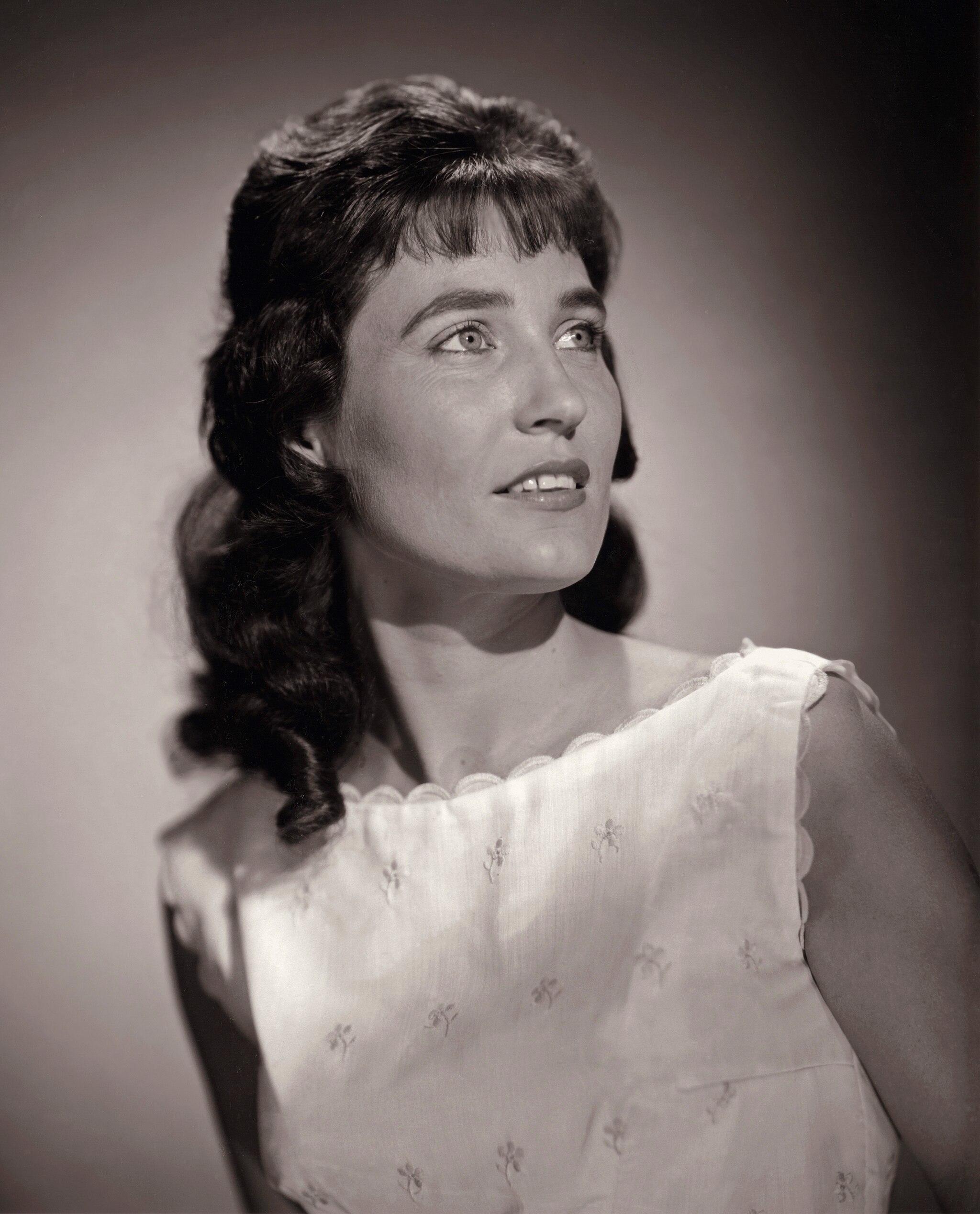
Loretta Lynn’s autobiographical “Coal Miner’s Daughter” gave a realistic snapshot of her humble upbringing in rural Kentucky.
The song’s genuineness made listeners with similar backgrounds feel proud and heard, while other listeners were intrigued by hearing about such a different type of life.
It not only propelled her career but also elevated working-class stories in country music, showing that real-life experiences could become timeless songs.
The song was such a phenomenal hit that it continues to feature on many a classic country songs list.
"Hello Darlin'" - Conway Twitty (1970)
This song became a signature hit for Conway Twitty because it highlighted his emotive voice in a tender ballad about heartbreak. Its conversational opening immediately drew listeners in, making the song feel personal and genuine. Twitty’s mastery of storytelling helped establish him as one of country music’s most beloved voices, and the song remains a timeless classic.
"For the Good Times" - Ray Price (1970)
Price’s classic song is a standout example of the Nashville Sound. Its reflective tone spoke to audiences, capturing the bittersweet nature of a relationship’s end. Just like old country songs before, it was an homage to love and heartbreak that resonated with many.
"Kiss an Angel Good Mornin'" - Charley Pride (1971)
Charley Pride brought warmth and charm to “Kiss an Angel Good Mornin’,” a joyful ode to love and appreciating your partner.
Its upbeat melody and Pride’s rich voice connected with fans, solidifying his place in country music history.
The song’s success helped break barriers in the industry, highlighting Pride’s role as one of country’s first major Black stars.
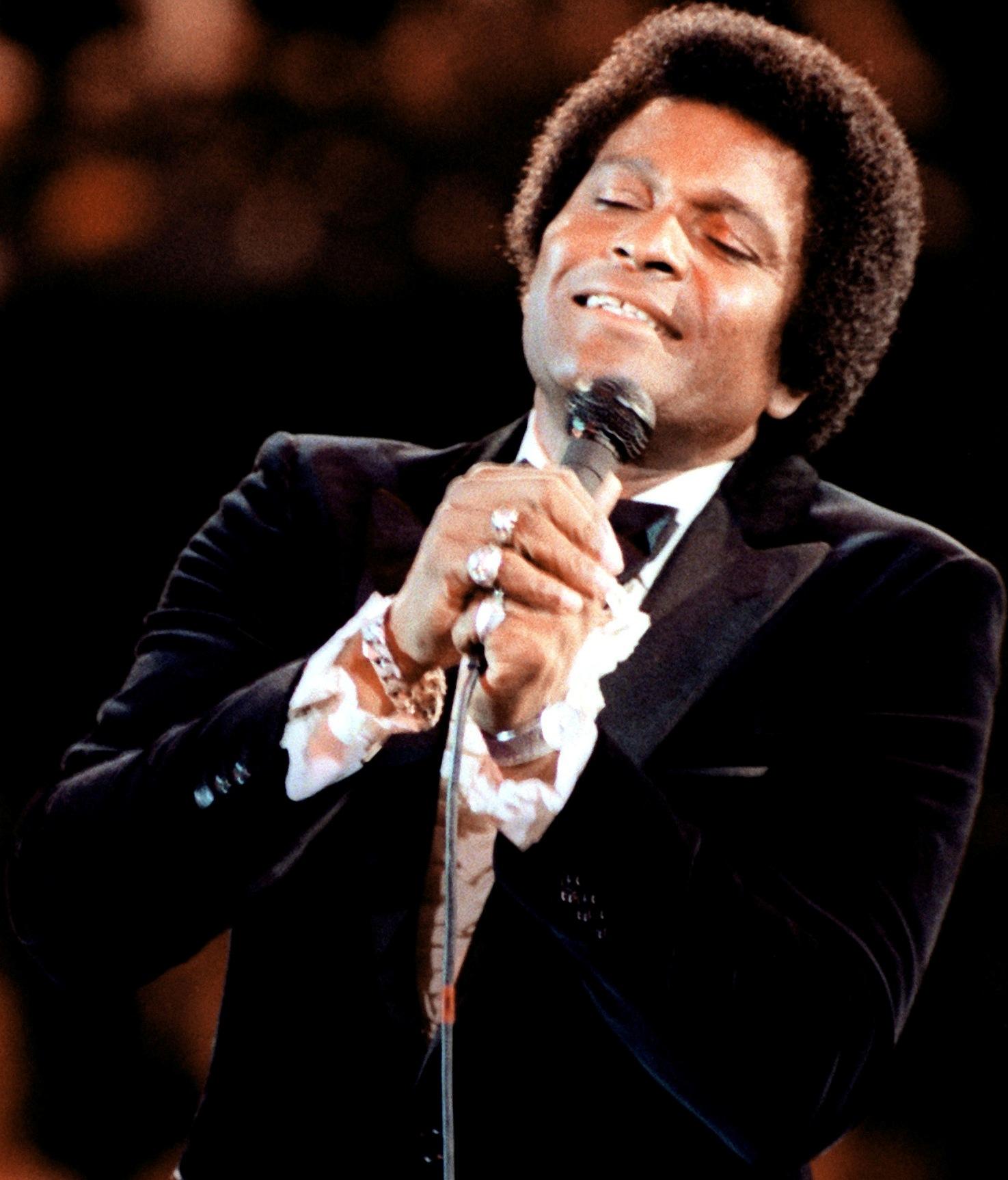
"Coat of Many Colors" - Dolly Parton (1971)
Parton’s autobiographical song told a deeply personal story of poverty and family pride, resonating with listeners who appreciated its honesty. The song’s simple arrangement allowed Parton’s voice and lyrics to shine, showcasing her gift for storytelling. It has been added to the Library of Congress’s National Recording Legacy for its cultural impact.
"Jolene" - Dolly Parton (1973)
With its haunting melody and emotional intensity, “Jolene” was an immediate sensation. Dolly’s vivid storytelling and expressive delivery as she begs Jolene to leave her husband alone was enthralling then and has seen waves of new interest over time as the lyrics are reinterpreted by new generations. Today, it’s still by far one of the most iconic songs in country music from the 70s.
"Behind Closed Doors" - Charlie Rich (1973)
Rich’s sophisticated and restrained sensuality in “Behind Closed Doors” made the song suitable for both country and pop fans. The romantic lyrics and music were a rather new direction in country music, which had typically featured chaste romance and different levels of heartbreak. The song’s success earned Rich the nickname “The Silver Fox” and showcased the growing influence of crossover hits in the 1970s.
"Rhinestone Cowboy" - Glen Campbell (1975)
“Rhinestone Cowboy” became an anthem for dreamers, with Campbell delivering its optimistic lyrics about chasing success. Its polished production and universal message extended far beyond the country genre, making it a crossover sensation. The song has been a comfortable staple for many country, pop, and country pop music fans and has inspired other media, such as the 1984 movie Rhinestone starring Sylvester Stallone and Dolly Parton.
"Lucille" - Kenny Rogers (1977)
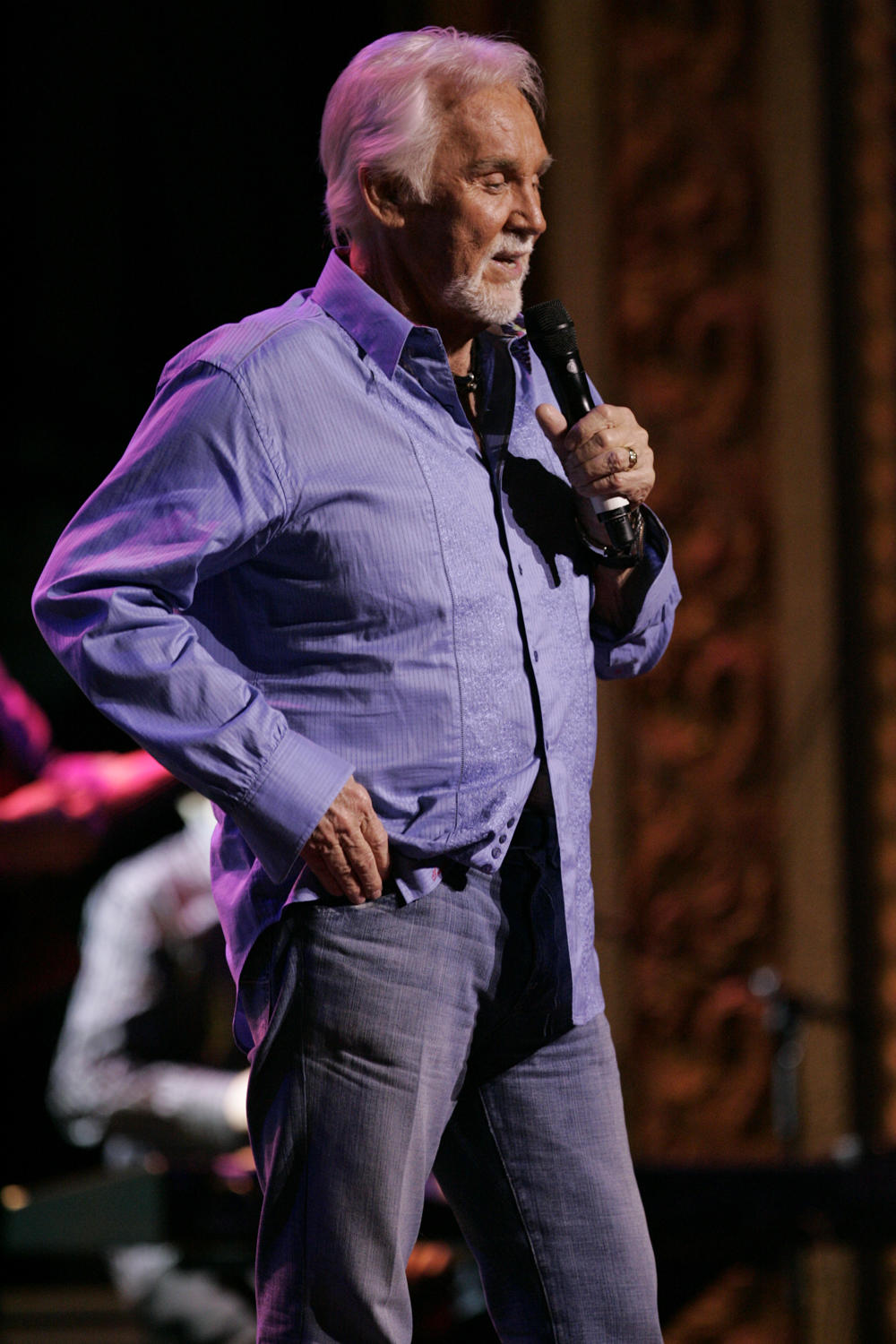
This emotional song by Rogers tells a vivid story of heartbreak and regret, drawing listeners into its dramatic narrative.
Rogers’ distinctive voice added depth and authenticity to the tale, making it a massive hit, Rogers’ first since going solo.
The short and simple-on-the-surface track leaves audiences wondering lots of questions, giving the song the ability to make a lasting impression.
"Mammas Don't Let Your Babies Grow Up to Be Cowboys" - Waylon Jennings and Willie Nelson (1978)
This duet by Waylon Jennings and Willie Nelson celebrated the rugged, independent spirit of cowboys while warning against their restless ways. One of the biggest and most quintessential examples of the outlaw movement in country music, the song overtly warns mothers to not let their sons become cowboys. But, the underlying message is relevant at any time period, since the “cowboy” mentality and lifestyle mentioned in the song can happen at any time, anywhere.
"The Gambler" - Kenny Rogers (1978)
“The Gambler” turned a simple card game into a life lesson, with Rogers delivering its wisdom in his unmistakable voice. In the genre of 1970s country music, this song is always on the list. Its iconic story and tune are timelessly referenced in pop culture of all sorts.
"The Devil Went Down to Georgia" - Charlie Daniels Band (1979)
A unique song by any measure, “The Devil Went Down to Georgia” thrilled audiences with its high-energy fiddle battle and fantastic tale of a showdown between good and evil. The song’s fast-paced storytelling and Daniels’ fiery performance made it unforgettable. Its success brought a spotlight to Southern rock and showcased the fiddle as a dynamic centerpiece in country music. Just about everyone has heard of this song because it’s so interesting!
Country music’s presence surged dramatically beginning in the 1950s. The sound of the genre changed quite a bit over 30 years, but it’s still easy to group these decades together as the era of what we now call “classic country.”
Summarize with AI:

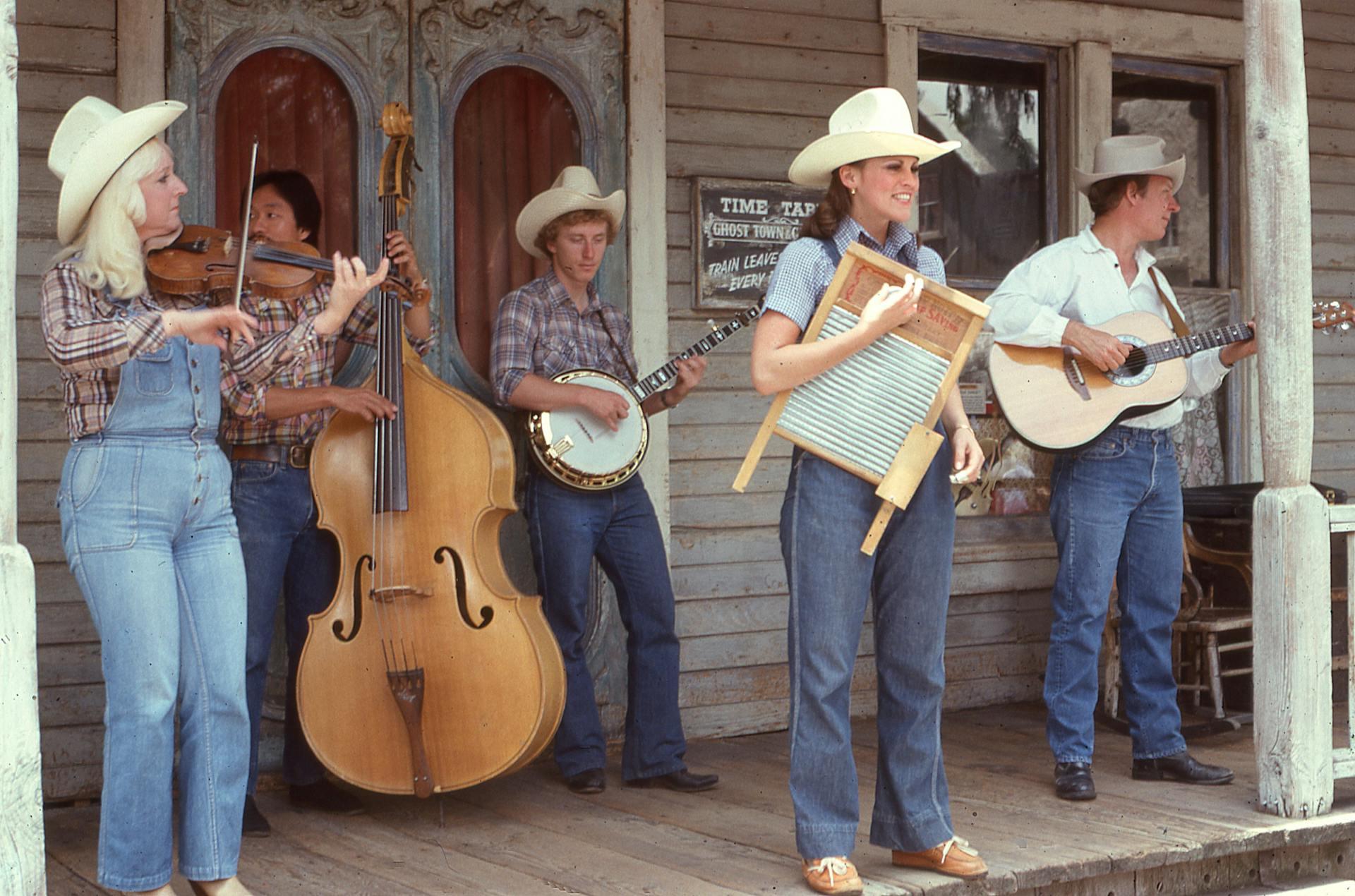














Can I listen to all these great songs on one radio station. ? Please let me know that radio station. I used to hear them on K96.9 FM . Thank you.
Hello Janice! You can listen to these great country songs on 100.9 Classic Country radio station. Happy listening! 🎧🎶